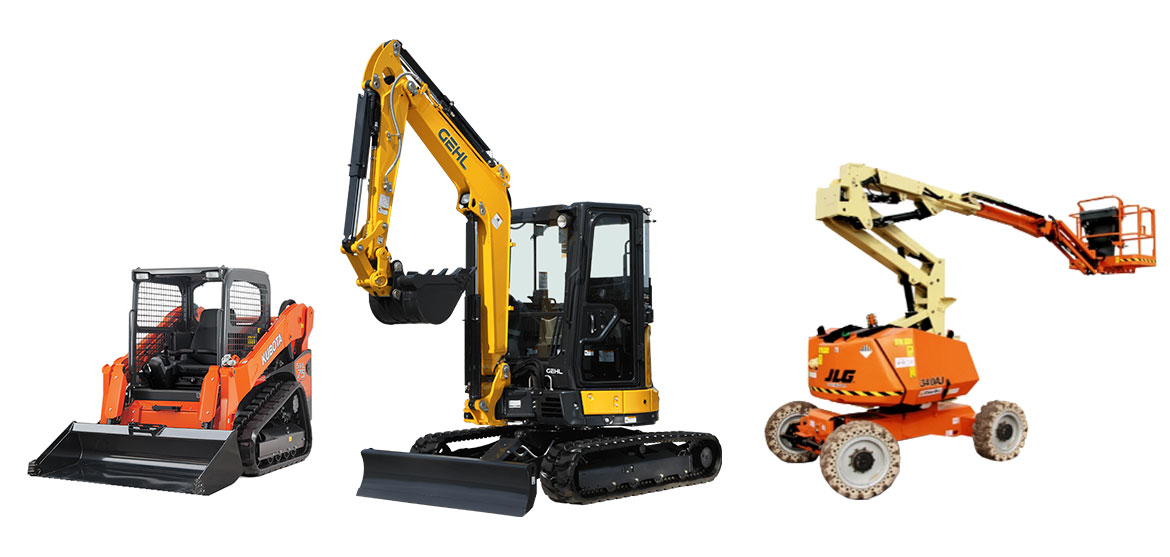Equipment Rental Company: Your Resource for All Sorts Of Equipment
Equipment Rental Company: Your Resource for All Sorts Of Equipment
Blog Article
Optimize Your Budget by Comprehending the Expenses Related To Building And Construction Tools Rentals
Understanding the full extent of costs associated with building and construction tools rentals is vital for optimizing your budget plan. What approaches can be employed to efficiently handle these costs and ensure a more reliable rental experience?
Review of Rental Costs
When taking into consideration building equipment rentals, recognizing the connected costs is critical for effective budgeting and project preparation. Rental prices can vary significantly based on numerous factors, consisting of equipment type, period of service, and area. The preliminary rental fee typically reflects the equipment's market need and its connected operational capacities, affecting the total expense.
In addition to the base rental rate, ancillary prices might arise, such as transport costs, gas surcharges, and maintenance fees. It is vital to represent these additional expenses to accurately analyze the complete price of renting out devices. The rental duration can influence pricing; longer rentals might certify for affordable rates, while short-term services may incur greater daily costs.

Malfunction of Rental Rates
A comprehensive understanding of rental rates is essential for specialists and job supervisors intending to optimize their budgets. Rental rates for construction tools generally consist of a number of elements, consisting of base prices, time-based charges, and usage charges.
Base rates are the core costs connected with the service of the equipment, usually established by the type and dimension of the machinery. These prices can vary dramatically, affected by aspects such as equipment need, accessibility, and local market patterns. Time-based fees, which may be daily, weekly, or monthly, offer to fit different job timelines and rental periods.
In addition, rental rates might include usage charges, which apply when devices is made use of beyond a specified limit, making certain that the rental company can represent deterioration. Seasonal demand fluctuations can also influence rental prices, with peak construction periods typically regulating higher costs.
In addition, comprehending the rental company's plans concerning maintenance and insurance policy can offer further understanding right into the general price structure. By evaluating these parts, specialists can make enlightened choices, guaranteeing the option of rental tools aligns with both project needs and spending plan restrictions.
Extra Charges to Think About
Comprehending the intricacies of extra costs is critical for contractors to handle their overall rental expenditures effectively. Beyond the conventional rental prices, numerous auxiliary charges can substantially affect the total expense of equipment service. These fees usually include shipment and pick-up fees, which can vary based upon distance and logistics included in transporting the tools to and from the work website.
Additionally, some rental firms might enforce gas surcharges if the equipment is returned with much less gas than when leased. It is also important to understand potential cleaning costs, specifically for customized tools that requires thorough maintenance after usage.

Completely assessing the rental Bonuses arrangement and clearing up these added costs upfront can assist professionals guarantee and avoid unforeseen costs that spending plans remain intact throughout the job lifecycle.
Upkeep and Repair Work Expenses
Routine repair and maintenance costs are commonly neglected elements that can dramatically affect the total cost of building and construction tools rentals. When renting devices, it is vital to take into consideration not only the rental fees however likewise the prospective expenses connected with keeping the machinery in ideal operating condition.
Lots of rental companies include standard maintenance as component of the rental agreement; nevertheless, much more unanticipated break downs or considerable repair work can lead to extra costs. It's important to review the rental contract carefully to recognize what maintenance solutions are covered and what duties drop on the occupant.
Moreover, devices that is not well-maintained can bring about inadequacies at work site, compact motor grader possibly causing hold-ups and raising job prices. To reduce these dangers, it is recommended to carry out regular inspections and maintain open communication with the rental provider regarding any kind of concerns that emerge throughout usage.
Insurance Coverage and Obligation Prices
Insurance coverage and responsibility prices are critical parts that can dramatically influence the overall expenditure of building tools leasings (aerial lift rental). These costs make sure that both the rental business and the customer are shielded from possible financial losses occurring from mishaps, damages, or theft throughout the rental period

Additionally, customers must know any deductibles or exclusions in the insurance plan, as these can affect possible out-of-pocket costs. Recognizing the terms and conditions of any insurance policy protection is crucial to prevent unexpected expenses. Eventually, budgeting for insurance policy and liability costs can help make sure a smoother rental experience and protect against financial risks related Visit Website to building and construction tasks.
Conclusion
In verdict, a detailed understanding of the costs associated with building and construction devices services is important for reliable budget plan management. Ultimately, educated decision-making pertaining to equipment services contributes to the general success of building and construction ventures.
Rental expenses can differ substantially based on several factors, consisting of devices kind, duration of service, and area (equipment rental company). The rental duration can influence rates; longer leasings may qualify for affordable prices, while short-term rentals could sustain greater everyday fees
By carrying out extensive study and involving with credible rental business, contractors can properly navigate the intricacies of rental prices, inevitably maximizing their financial sources.
Beyond the typical rental rates, numerous auxiliary fees can substantially impact the overall price of devices leasing. Rental firms frequently supply responsibility insurance that covers injuries to 3rd events or damages to home, while equipment damages insurance coverage can cover the expense of repair services or replacement if the rented devices is damaged.
Report this page